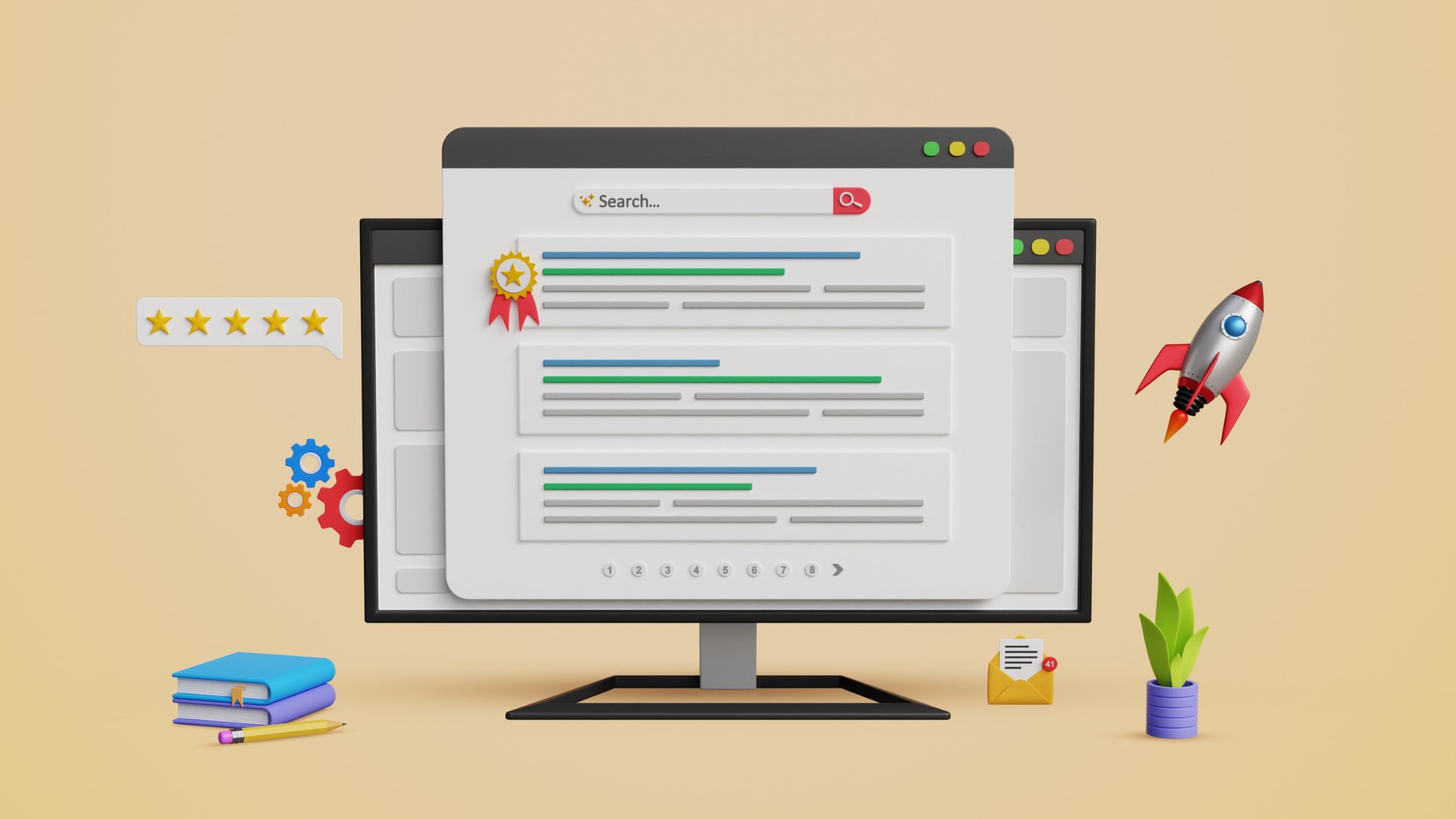Are you an employer or employee in Singapore? Understanding the Employment Act is crucial for navigating the workplace landscape. This comprehensive guide will walk you through the key aspects of Singapore's primary labour law, ensuring you're well-informed about your rights and obligations. From working hours to leave entitlements, salary regulations to termination procedures, we'll cover the essential provisions that shape fair employment practices in the Lion City. Whether you're hiring or job-seeking, this overview will equip you with the knowledge to foster a just and productive work environment.
The Singapore Employment Act is the primary labour law governing employment relationships in the country. It covers various aspects of employment, including wages, working hours, leave entitlements, and termination procedures. The Act applies to most employees in Singapore, with some exceptions for certain groups like managers, executives, and domestic workers.
The Ministry of Manpower (MOM) is responsible for enforcing the Employment Act. Non-compliance can result in penalties, including fines and potential imprisonment for severe breaches. Employers must ensure they adhere to the Act's provisions and stay informed about any updates or amendments to maintain a fair and just employment environment.
Singapore's employment regulations play a crucial role in maintaining a fair and productive work environment. As an employer or employee, you should be aware of the Employment Act Singapore, the cornerstone of labour law in the country. This legislation covers most employees, regardless of nationality, with some exceptions for managers, executives, and public servants.
The Act establishes essential standards for:
Understanding these regulations is vital for compliance and fostering positive workplace relationships. The Employment Act also provides additional protections for manual labourers under Part IV, ensuring comprehensive coverage across various job roles.
To stay compliant, HR professionals should consider leveraging HRIS for accurate recordkeeping and seeking guidance from legal or HR consultants when necessary. By adhering to these regulations, you contribute to a fair and just employment landscape in Singapore.
The Employment Act in Singapore covers most employees, with some exceptions. You're likely protected if you're working under a contract of service, regardless of your nationality. This includes full-time, part-time, and temporary employees.
However, the Act doesn't apply to all workers. According to the Ministry of Manpower, those excluded are:
It's crucial to note that even if the Employment Act does not cover you, you're still protected by other labour laws and your employment contract. If you're unsure about your status, consult your HR department or seek legal advice.
You should be aware that the Employment Act sets clear guidelines on working hours. For most employees, the standard workweek is limited to 44 hours. If you work beyond these hours, you're entitled to overtime pay, typically at 1.5 times your hourly basic rate.
The Act ensures you receive adequate time off. You're entitled to at least 7 days of annual leave in your first year of service, increasing with each year of employment. Additionally, you have the right to paid sick leave and public holidays.
Your employer must pay your salary at least once a month and within 7 days after the end of the salary period. The Act also regulates salary deductions, ensuring they're made only under specific circumstances and within legal limits.
Both you and your employer must provide notice before terminating employment. The notice period varies based on your length of service, ranging from 1 day to 4 weeks. The Act also outlines circumstances for termination without notice and your rights in such situations.
In Singapore, the standard workweek typically consists of 40 hours, with employees working from 9 am to 6 pm, Monday through Friday. However, the Employment Act (EA) sets specific limits for certain categories of workers. Employees covered under Part IV of the EA are permitted to work up to 9 hours per day or 44 hours per week for those on a 5-day workweek. For those working more than 5 days, the limit is 8 hours per day or 44 hours per week.
Overtime pay is mandated for employees earning less than SGD 2,600 per month. These workers are entitled to 1.5 times their hourly rate for overtime work. It's important to note that there's a monthly cap of 72 hours for overtime work. In exceptional circumstances, such as accidents or urgent work, employees may be required to work beyond the standard 12-hour daily limit.
The EA stipulates that every employee is entitled to at least one rest day per week, which is typically unpaid. If an employee is required to work on their rest day, they are entitled to additional compensation. For employees earning less than SGD 2,500 per month, statutory break rights include a 45-minute meal break.
In Singapore, employees are entitled to paid annual leave after three months of service, starting with 7 days in the first year and increasing to 14 days after 8 years. Those earning over SGD 2,600 can negotiate for additional leave. Sick leave eligibility begins after three months, requiring employees to inform their employer within 48 hours of absence. Employees are entitled to 5 to 14 days of outpatient sick leave and 15 to 60 days of paid hospitalization leave, depending on their length of service. Additionally, employees receive 11 paid public holidays annually, with extra compensation for working on those days.
Salaries must be paid monthly within seven days after the salary period, and both employees and employers contribute to the Central Provident Fund (CPF). Contribution rates vary based on age, citizenship, and wages; for instance, Singaporean or PR employees under 55 earning over $750 have an employer contribution of 17% and an employee contribution of 20%. It's essential to regularly check CPF accounts to ensure accurate contributions, as they significantly impact retirement savings, healthcare costs, and housing needs.
As an employee in Singapore, you're entitled to timely salary payments and CPF contributions. Employers must pay salaries at least once a month, within seven days after the end of the salary period. For CPF, both you and your employer contribute a percentage of your monthly wages to your CPF accounts.
According to the Ministry of Manpower, CPF contribution rates vary based on your age, citizenship status, and monthly wages. For instance, if you're a Singaporean or Permanent Resident aged 55 and below, earning more than $750 per month, your employer contributes 17% of your wage, while you contribute 20%.
It's crucial to understand your CPF contributions, as they impact your retirement savings, healthcare costs, and housing needs. The CPF Board website provides detailed information on contribution rates and calculation methods. Remember, your employer is responsible for making accurate and timely CPF contributions on your behalf.
Tip: Regularly check your CPF account to ensure your contributions are correctly credited.
Employment contracts in Singapore are governed by the Employment Act, which sets minimum standards for working conditions and employee rights. As an employee, you have the right to receive a written document outlining your Key Employment Terms (KETs) within 14 days of starting work. This document should detail your job title, duties, working hours, salary, and leave entitlements.
Your contract may include a probationary period, typically lasting 3-6 months, during which both you and your employer can assess suitability. Be aware of clauses such as confidentiality agreements and non-compete clauses, which protect the employer's interests but must be reasonably scoped.
As an employee, you're entitled to benefits like paid annual leave, sick leave, and public holidays. Your employer is obligated to provide a safe working environment and must compensate you for work-related injuries under the Work Injury Compensation Act.
Remember, while flexible working arrangements aren't a statutory right, many employers offer them. Always ensure you understand your contract fully before signing, and don't hesitate to seek clarification on any terms you're unsure about.
In Singapore, employment termination must adhere to specific procedures outlined in the Employment Act to ensure fairness for both employers and employees. Typically, a notice period ranging from 1 day to 4 weeks, based on length of service, is required. However, employers can terminate employment immediately for gross misconduct, such as insubordination or unauthorized absence.
Before dismissing an employee for misconduct, employers must conduct a fair inquiry, allowing the employee to present their case, and employees are entitled to at least half of their usual salary during this process. If an employee believes they have been wrongfully dismissed, they can file a claim with the Tripartite Alliance for Dispute Management within one month of their last workday. For collective dismissals of five or more employees, employers must inform the Ministry of Manpower and follow guidelines on managing excess manpower, although there is no statutory right to severance pay; recommendations suggest 2 weeks to 1 month's salary per year of service for retrenchment.
In Singapore, workplace health and safety standards are governed by the Workplace Safety and Health (WSH) Act. This legislation aims to protect employees' safety, health, and welfare whilst at work. As an employer, you are responsible for implementing robust safety measures and fostering a culture of workplace safety.
You must prioritise occupational safety to safeguard your employees, avoid financial losses, and maintain a positive reputation. Your duties include:
Employees also play a crucial role in maintaining a safe work environment. They should adhere to safety protocols, use protective equipment, and report any unsafe conditions.
It's important to note that employees have the right to refuse unsafe work if they reasonably believe there's a danger. As an employer, you must investigate such claims, address any risks, and avoid retaliating against employees exercising this right.
Non-compliance with the WSH Act can result in severe penalties, including fines and imprisonment. Additionally, you may face stop-work orders and reputational damage. To ensure compliance, consider leveraging HR solutions that can help streamline safety regulation tracking and empower employees to maintain a safer workplace.
The upcoming Workplace Fairness Legislation (WFL) in Singapore will enhance protections against workplace discrimination and harassment, prohibiting discrimination based on characteristics such as nationality, age, sex, marital status, caregiving responsibilities, race, religion, and disability. The WFL applies throughout all employment stages, from hiring to termination, and includes key provisions such as the prohibition of direct discrimination, fair job advertising, protection against retaliation for reporting, and proper grievance handling processes.
Employers are responsible for preventing and addressing harassment by establishing a robust anti-harassment policy, conducting regular training, providing accessible reporting channels, and fostering an inclusive culture. Additionally, equipping managers with leadership training for conflict resolution is essential. These measures aim to create a safe and respectful work environment for all employees.
To hire foreign professionals in Singapore, employers must meet specific guidelines, including a minimum monthly salary of S$5,600 for Employment Pass (EP) holders, rising to S$6,200 in the financial sector as of January 2024. This adjustment is designed to maintain a high-quality foreign workforce while supporting local talent.
Additionally, employers must adhere to the Fair Consideration Framework, which promotes fair employment opportunities for Singaporean citizens and aims to ensure workplace fairness and protection against discrimination. Recent regulatory changes have also limited Employer of Record (EOR) services from sponsoring work permits for foreign nationals, prompting foreign companies to establish a legal entity in Singapore, set up a representative office, or incorporate with the Accounting and Corporate Regulatory Authority (ACRA) to remain compliant with local labor laws.
As an employer, you must comply with the Personal Data Protection Act (PDPA) when handling employees' personal information. This legislation sets baseline standards for safeguarding personal data in Singapore.
You may process employee data without explicit consent if it's reasonable for managing the employment relationship, such as payroll or performance evaluations. However, you must notify employees of the purposes for data collection and use it only for those specified reasons.
Ensure you implement appropriate security measures to protect employee data from unauthorised access or misuse. Conduct data protection impact assessments to identify and mitigate risks. When sharing data with third parties or transferring it outside Singapore, verify that the recipient provides comparable protection levels.
Remember, employees have rights under PDPA to withdraw consent, access their personal data, and request corrections. To maintain compliance, establish clear policies and procedures, and consider leveraging automation for simplifying compliance tasks.
In Singapore, trade unions play a crucial role in maintaining harmonious industrial relations. The National Trades Union Congress (NTUC) serves as the sole national centre for trade unions, focusing on increasing productivity and supporting worker welfare. Collective agreements, negotiated between unions and employers, form the backbone of employee-employer relations.
These agreements, once reached, are legally binding and deemed as awards of the Industrial Arbitration Courts. They cover various aspects of employment, including:
The Industrial Relations Act 1960 outlines the process for trade unions to be recognised by employers for collective bargaining. This includes:
Singapore's unique tripartite framework, involving the government, unions, and employers, fosters cooperation and mutual understanding. This approach has helped maintain stable industrial relations despite economic pressures, prioritising national interests over short-term gains.
Employee equity-based incentive plans are widely used in Singapore to attract, retain, and motivate staff by offering them a stake in the company's ownership. These schemes align employees' interests with those of shareholders and provide flexibility in compensation structures.
The most common types of incentive plans in Singapore include:
ESOPs are particularly popular among early-stage startups, typically featuring a 4-year vesting schedule with a 1-year cliff. The exercise price can be set at nominal value or fair market value, impacting employee incentives and tax treatment.
While there's no specific legislation regulating these schemes, companies must consider various factors when designing plans, including securities laws, company law, and employment regulations. Key considerations include defining objectives, determining eligible participants, and setting vesting conditions.
Recent trends show an increased use of malus and clawback provisions, especially in the financial sector, allowing for adjustments to variable remuneration in cases of poor performance or misconduct.
Non-compliance with Singapore's Employment Act can lead to significant penalties for employers, including imprisonment for up to 6 months and fines of up to S$5,000 for each violation, with harsher penalties for repeat offenses. Businesses need to understand these regulations to prevent legal issues.
Common violations include failing to provide itemized pay slips, which can incur fines up to S$1,000 for first-time offenders; late CPF contributions, attracting a 1.5% interest penalty; and late submission of income records to IRAS, resulting in fines up to S$5,000. Additionally, delayed Skills Development Levy payments face a 10% annual penalty on the outstanding amount. The CPF Board uses various detection methods, including audits and employee reports, and employers must cooperate during inspections to avoid further offenses. To ensure compliance, employers should implement strong HR systems and stay updated on employment regulations.
The Employment Act in Singapore was significantly amended in 2019 to enhance protections for a broader range of employees. Notably, the salary cap for managers and executives was removed, extending coverage to an additional 430,000 workers, thereby ensuring they benefit from minimum standards for paid annual leave, public holidays, and sick leave.
The amendments also streamlined the dispute resolution process, transferring wrongful dismissal and salary-related claims to the Employment Claims Tribunal for more efficient handling. Managers and executives can now seek assistance after just 6 months of service, down from a year. Additionally, employers gained flexibility by being allowed to make salary deductions with written consent from employees, who can withdraw this consent without penalty. Understanding these changes is essential for compliance and fostering a fair workplace.
The Singapore Employment Act is a cornerstone of fair labour practices in the nation, safeguarding both employers and employees. By understanding its provisions, workers can assert their rights whilst employers can ensure compliance. As Singapore's employment landscape evolves, staying informed about the Act's amendments is crucial. Remember, knowledge of these regulations empowers you to foster a positive work environment and contribute to Singapore's thriving economy.
For the latest job opportunities that align with your rights and expectations, visit FastJobs today.

In Singapore’s job market, portals offer fast access while agencies provide tailored matchmaking.
Read more
Retail in SG is rising! Wage growth & skills training create new career paths. Explore jobs with FastJobs.sg.
Read more
Hiring faster starts here—Job Bump boosts your listing by 30%+ without needing a repost.
Read more